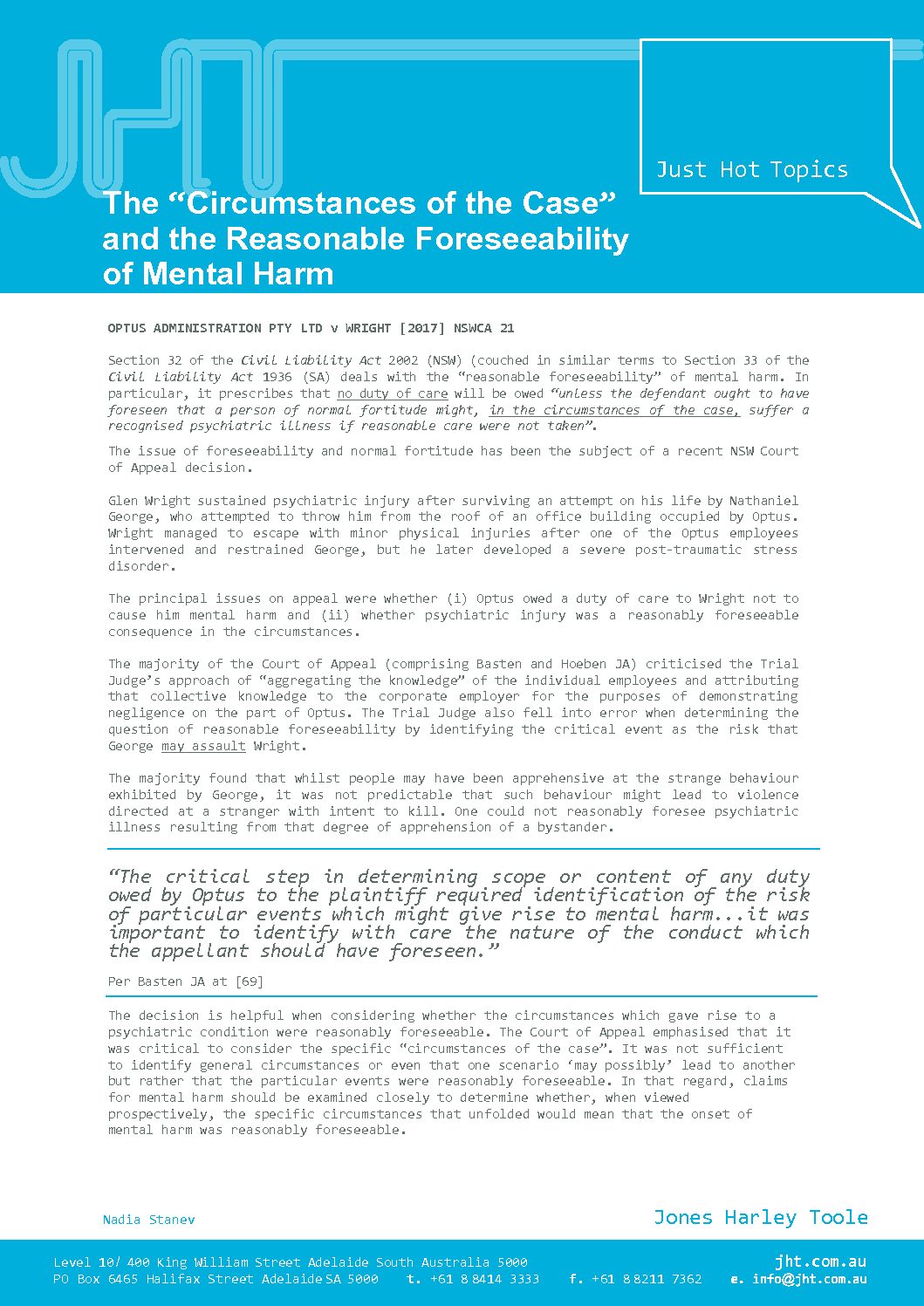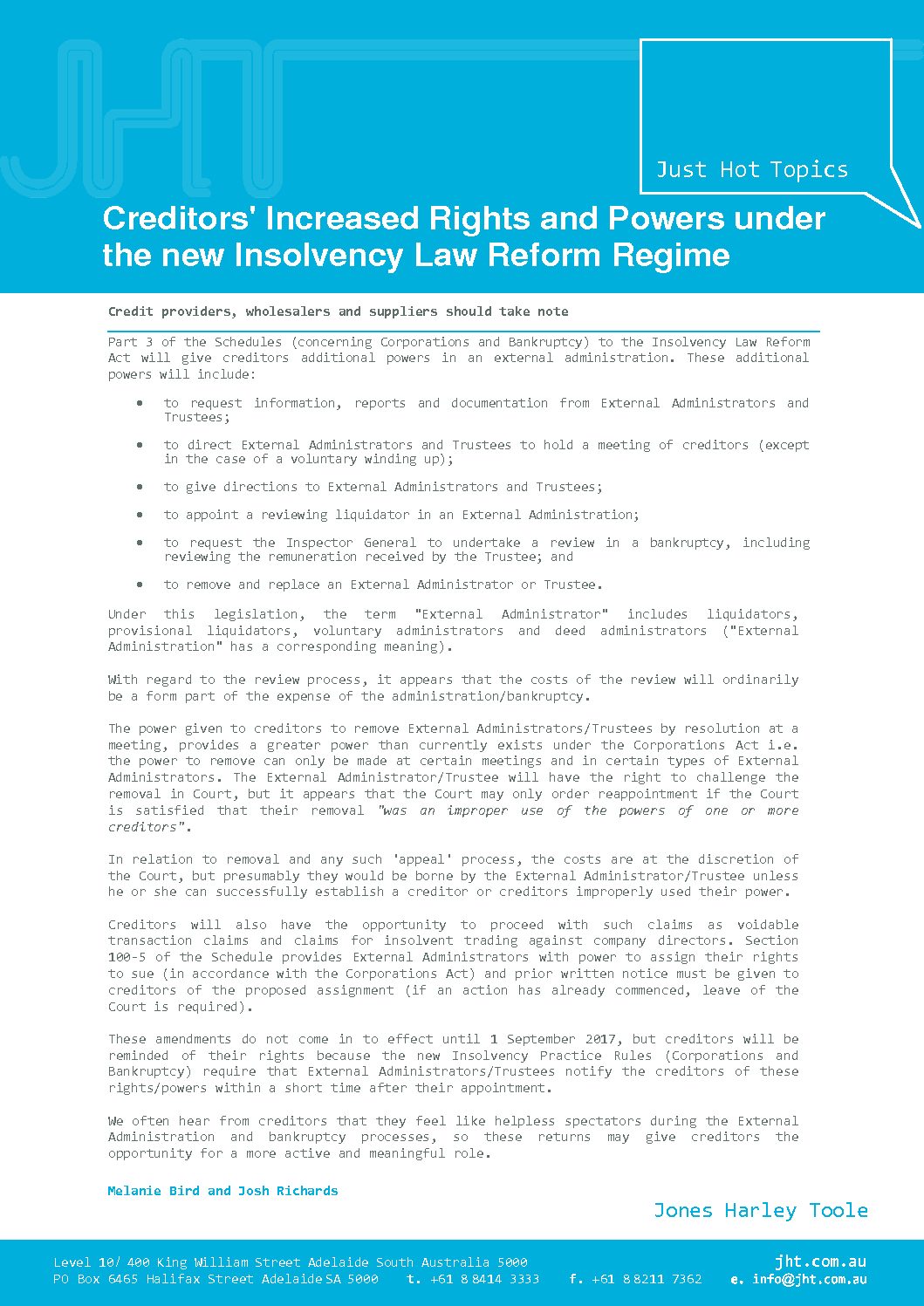CREDITOR’S INCREASED RIGHTS AND POWERS UNDER THE NEW INSOLVENCY LAW REFORM REGIME

THE “CIRCUMSTANCES OF THE CASE” AND THE REASONABLE FORESEEABILITY OF MENTAL HARM
14 March 2017
JHT CELEBRATES WITH CLIENTS AT OUR MORTLOCK LIBRARY FUNCTION
15 August 201723rd March 2017
Credit providers, wholesalers and suppliers should take note
Part 3 of the Schedules (concerning Corporations and Bankruptcy) to the Insolvency Law Reform Act will give creditors additional powers in an external administration. These additional powers will include:
• to request information, reports and documentation from External Administrators and Trustees;
• to direct External Administrators and Trustees to hold a meeting of creditors (except in the case of a voluntary winding up);
• to give directions to External Administrators and Trustees;
• to appoint a reviewing liquidator in an External Administration;
• to request the Inspector General to undertake a review in a bankruptcy, including reviewing the remuneration received by the Trustee; and
• to remove and replace an External Administrator or Trustee.
Under this legislation, the term "External Administrator" includes liquidators, provisional liquidators, voluntary administrators and deed administrators ("External Administration" has a corresponding meaning).
With regard to the review process, it appears that the costs of the review will ordinarily be a form part of the expense of the administration/bankruptcy.
The power given to creditors to remove External Administrators/Trustees by resolution at a meeting, provides a greater power than currently exists under the Corporations Act i.e. the power to remove can only be made at certain meetings and in certain types of External Administrators. The External Administrator/Trustee will have the right to challenge the removal in Court, but it appears that the Court may only order reappointment if the Court is satisfied that their removal "was an improper use of the powers of one or more creditors".
In relation to removal and any such 'appeal' process, the costs are at the discretion of the Court, but presumably they would be borne by the External Administrator/Trustee unless he or she can successfully establish a creditor or creditors improperly used their power.
Creditors will also have the opportunity to proceed with such claims as voidable transaction claims and claims for insolvent trading against company directors. Section 100-5 of the Schedule provides External Administrators with power to assign their rights to sue (in accordance with the Corporations Act) and prior written notice must be given to creditors of the proposed assignment (if an action has already commenced, leave of the Court is required).
These amendments do not come in to effect until 1 September 2017, but creditors will be reminded of their rights because the new Insolvency Practice Rules (Corporations and Bankruptcy) require that External Administrators/Trustees notify the creditors of these rights/powers within a short time after their appointment.
We often hear from creditors that they feel like helpless spectators during the External Administration and bankruptcy processes, so these returns may give creditors the opportunity for a more active and meaningful role.
Melanie Bird SPECIAL COUNSEL
Josh Richards SENIOR ASSOCIATE
Click on the link below to view in PDF format





